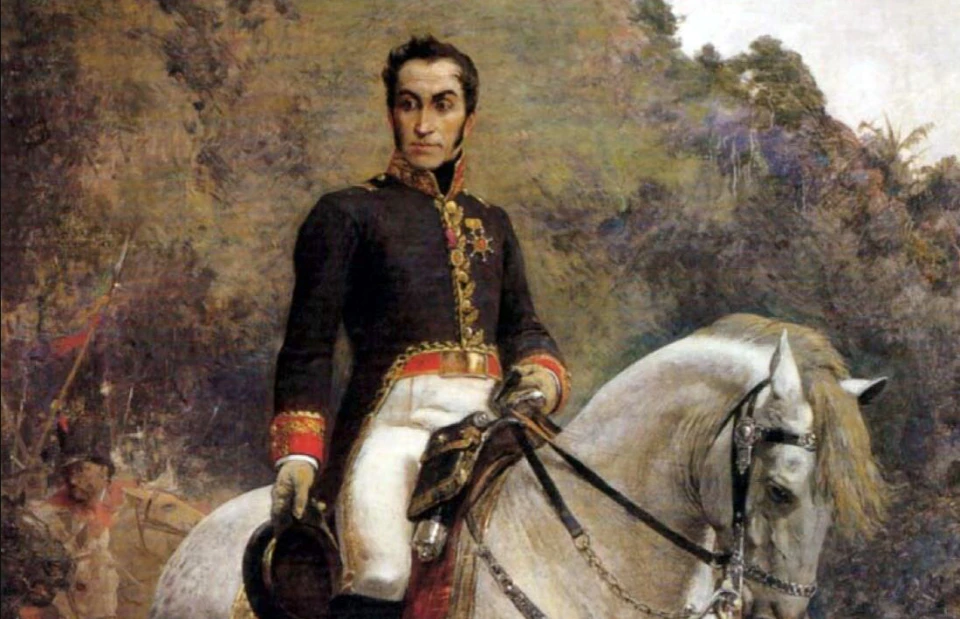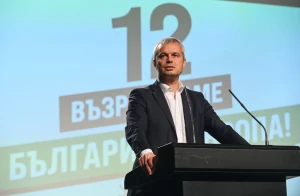
Will Bolivar be able to carry all?
The leaders of the CELAC organization, consisting of 33 Latin American and Caribbean countries, have shown reluctance to offer even mere symbolic support to Ukraine in its struggle against Russian aggression and the proposed Peace Formula presented by Kyiv
The draft document sent by the leaders of the CELAC organization to Brussels ahead of their meeting with EU leaders on July 17-18 revealed this. It calls the war in Ukraine a "conflict in Europe" that should be "resolved by peaceful means." The wording is so vague that it is unclear what conflict is being referred to.
Instead, Latin Americans suggest that the EU should focus on social and economic development, environmental protection, and... compensation for the damage caused by the transatlantic slave trade. And unofficially, their diplomats complain that Europeans are "once again trying to impose their own agenda," thus demonstrating the arrogance inherited from the days of colonialism. And that they generally do not want to recognize their former overseas possessions as equal partner states.
Of course, Ukrainians are also offended, at least those who are interested in events outside of Europe. It is generally difficult for us to understand when others do not share our feelings. Especially when it comes to seemingly obvious facts - after all, the Russians have not only attacked our country, but also kill Ukrainians every day, committing horrific war crimes. The lack of empathy on the part of peoples who are usually considered to be overly emotional is all the more suspicious. It is easier to explain this position by the influence of Moscow, which is indeed significant in Latin America.
“A few years ago, however, Ukrainians complained about the lack of understanding on the part of Western Europeans. Of course, the concerns over "Kremlin's tentacles" were present as well. But there was another explanation. It was suggested that residents of former colonial powers found it challenging to fully support those fighting for independence or against the consequences of colonial rule. Many still identified themselves with their past empires and subconsciously viewed Ukrainians as inhabitants of their former colonies.”
Of course, Kyiv and Lviv are geographically located in Europe, but so are Irish Dublin or, say, Basque Pamplona. In fact, many neighborhoods in Buenos Aires look quite European, but this does not prevent Argentines from reflecting on the history of colonialism and imperialism without any sense of nostalgia.
Did these associations disappear with the start of the large-scale Russian invasion? It's hard to say for sure. Rather, they have moved to the periphery of public consciousness. The Russians themselves, of course, have done a lot to avoid being perceived as "one of many" empires - the number of crimes and atrocities that the occupiers seem to be proud of sometimes does not encourage identification with them. And today comparisons are often drawn between Putin's Russia and the Third Reich, which is universally regarded as a symbol of absolute evil, particularly in Germany, France, and Britain.
Ukrainian statements have seen a shift towards referencing the experience of World War II, with less emphasis on anti-colonial or anti-imperialist rhetoric. This shift may not be intentional but rather reflects a search for images and parallels that resonate better with Western allies. However, it is important to recognize that the fight against Russia's aggression remains a fight for Ukraine's independence, similar to the struggles of countries in Africa, Asia, America, and the North.
“Why can't Ukrainians compare the leaders of their resistance not only to George Washington, but also to Simon Bolivar?”

Simon Bolivar. Since the time of O. Henry, his name has been associated with the horse. But the Latin American revolutionary's stallion (whom he loved very much) was, of course, named Palomo
Photo: WikipediaThe ground for comparison is not just the vivid picture and the fascinating "Bolivarian" romance. And not, of course, the fact that Petliura, a prominent Ukrainian revolutionary, has the same first name - the future chief ataman was named after an apostle, not the senior revolutionary. There are even more parallels between Ukraine's current Liberation War and the wars of independence in Latin America than it seems at first glance. And the problems that Ukrainians are facing today may actually be more understandable to their people than to some Europeans.
After all, if CELAC leaders raise the issue of compensation for the damage caused by transatlantic trade, Kyiv may also eventually recall the number of slaves taken from our country. Ukraine endured the enslavement of its people for not just a few centuries, but for over two millennia, a history that echoes even in the word "slave" in English.
Although... Maybe this is at least one of the reasons why Latin American leaders are distancing themselves from Ukraine and the war against Russian aggression? Maybe it's all about jealousy? The fact that Kyiv is taking over the attention and resources that the "third world" used to consider intended for them, the victims of colonialism and imperialism?
“Hence the desire to declare the Ukrainian struggle for independence as something different or less significant. By labeling the current war as an "intra-European conflict," there is an implicit suggestion that Europeans cannot fully comprehend the experiences of being a colony. An aspiration that Moscow is happy to fuel and encourage.”
But if this is the case, it is just another reason to doubt the sincerity of some "fighters against colonialism." For it is one thing when the goal of this struggle is to overcome backwardness and inequality, to leap "from the third world to the first," as Lee Kuan Yew once put it (whatever one's attitude to this figure and the true consequences of the "leap" he declared are). And it is quite different when the "anti-imperialist struggle" becomes a way of life, a movement without a goal, and sometimes even fuels backwardness and inequality, so that there are grounds to demand the same attention and resources, ostensibly to overcome them.
When it all comes down to the distribution of aid, there is, of course, never enough for everyone. If it is not a struggle for freedom, but moving money around, then Bolivar can't carry double, as O. Henry once remarked. This holds true even more so for a group of 33. Or 34, if you count Ukraine. With all due respect to the famous Latin American revolutionary.
Exclusively for Espreso TV.
About the author. Oleksiy Mustafin, Ukrainian journalist, television manager, politician, author of popular science books.
The editorial staff do not always share the opinions expressed by the blog authors.
- News














































